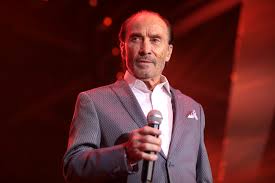Former President Donald Trump has slammed the NFL’s choice of Bad Bunny for the 2026 Super Bowl halftime show, calling it “absolutely ridiculous.” Trump admitted he wasn’t familiar with the Puerto Rican superstar and questioned whether his music would connect with the Super Bowl’s wide audience. Some, including House Speaker Mike Johnson, have suggested Lee Greenwood, the iconic singer of “God Bless the U.S.A.,” as a more fitting alternative.

Who is Bad Bunny?
Bad Bunny, born Benito Antonio Martinez Ocasio, is one of the most popular Latin music stars today. Known for his mix of reggaeton, Latin trap and urban music, he has achieved global success with chart-topping albums and sold-out tours. While beloved by millions worldwide, his unconventional style has sparked debate about whether he is the right fit for a mainstream event like the Super Bowl.
Why Trump and Johnson Disapprove
Trump called the choice “absolutely ridiculous” and admitted he didn’t know the artist. House Speaker Mike Johnson also criticized the selection, calling it a “poor decision.” Both suggested that a performer with broader appeal and patriotic resonance would be more suitable for such a widely watched American event.

Lee Greenwood – The Suggested Alternative
Lee Greenwood, famous for his 1984 anthem “God Bless the U.S.A.,” has become a symbol of American pride. With over 25 million albums sold and numerous chart-topping hits, Greenwood’s music evokes patriotism and nostalgia. Many believe his songs would better capture the Super Bowl audience’s traditional sensibilities.
The Debate – Tradition vs. Modern Trends
Super Bowl halftime shows have historically blended mainstream appeal with artistic innovation. Past performers like Beyoncé, Prince and Shakira proved that even initially controversial choices can become iconic. Supporters of Bad Bunny argue that including him reflects growing diversity and modern trends in music, appealing to younger, global audiences.
Cultural and Political Implications
The discussion isn’t just about music, it reflects broader questions about identity, culture and public taste. When political figures comment on entertainment choices, it amplifies debates about tradition, representation and the evolving American cultural landscape.
Looking Ahead to the 2026 Halftime Show
Regardless of opinions, the 2026 Super Bowl halftime show is shaping up to be a talking point. Whether viewers side with Trump and Johnson or celebrate Bad Bunny’s modern influence, the performance will highlight the clash and convergence of tradition, culture and entertainment on one of the world’s biggest stages.
Stay updated with all the latest news and insights on Free Skills Hub.



























